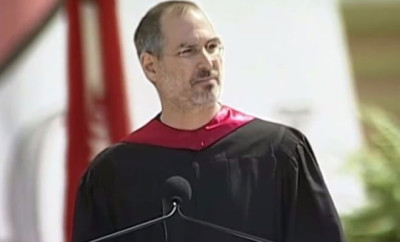
Deatheningly Silent
As grief emerges from within and how I learned to be present to it’s unfolding.
In February 2014 my brother David died suddenly at 49. He was a passenger in a motor vehicle accident and with his death my world became so much quieter. He was possibly the loudest person I knew, as you heard David coming minutes before you saw him, you felt his presence before he entered a room and you knew when he had gone. He was caring, kind and compassionate and would do anything for anyone and yet he too could be the most annoying person to have around. You’re maybe wondering why I am telling you this and so am I…. so here goes!
As a qualified, certified and registered professional coach and therapist I have learnt much about the grief process from textbooks and other people’s experiences of grieving; or so I thought I had and in reality I’ve learnt very little. Many years ago I came to appreciate that there are no universal linear steps or stages to a grief process and in fact it is a very personal and somewhat surprising journey. And yet nothing, studied or experienced previously, prepared me for the deathening silence that came with my brother’s death.
It is 9-months, I smile as I type those words realising that is the time that my mother carried my brother in her womb before giving birth to him, and so again when speaking about his death I become present to celebrating his life J Anyway, at the time of writing this 9-months have passed since my brothers death and although I would like to say it gets easier with time it actually doesn’t. It, being the essence of his passing, just moves differently and it could be confused with the energy of ‘easier’. Each time an emotion or felt-sense related to his death arises I find it has it’s own unique way of unfolding and the struggle to find multiple ways to be present to that ever changing grief, in the moment as it arises, is what I want to share.
Here is one experience I had earlier this year.
It is 6-months on and I’m talking to an acquaintance at a workshop and she asks me “How are you?” and I respond “I’m well and you?” she looks at me and asks, “No, how are you really?” and this hits me straight in the heart. I interpret her tone to be inquiry about my grief process and a surge of intense emotions rise up. Time ceases to exist, I’m having so many thoughts and feelings that I just want to run and hide.
- I became aware of a loud ringing, a BOOM, BOOM, BOOM sound, it is the warning sirens to let me know that the dam wall is about to burst, the flood gates will open and there will be no closing them until the water level drops significantly.
- I’m aware of something else that’s saying, “It’s ok to cry” and an inner-critic saying “No, not here, not now, don’t it will be embarrassing”.
- I’m aware that I have stopped breathing and I cannot swallow for that big fucking lump that just appeared in my throat.
- Something else is saying, “breathe and tell her “No really all is good” and force a smile, you know you can do that.”
- And… somewhere in the back of my mind is a studious part of me looking through some rule book for how I should be being at 6-months after my brothers death. Is it different for a brother than a parent, is it different for a sister than a brother, different for a lover than a brother and how about if it were my now favourite cat?
All I can do is breathe, once, twice, three times, deeply and evenly to slow it down! There is no right way of responding and yet something else is telling me that I need to be cautious about what I say next. So even more then being present to my grief process I need to tend to my relational processing. No wonder people in the torrent of grief don’t want to leave their homes.
So how can we be present fully to all that emerges during grief in a way that is healthy and useful in a world where time matters, implicit cultural expectations exist about how we should be grieving when a loved one dies, and knowing that there are so many experts out there just waiting to give us kindly advise regarding what’s right, wrong and to be expected in our grief process; and by experts I refer to family, friends and colleagues too.
For me it helps by being present to my body’s feedback. Yes our creative brains store much useful information, however in my experience in situations where intense and multiple emotions emerge simultaneously it is in the communicating with our bodies that we are able to stay in the flow of our own unique process without being lost to heady rules, beliefs and judgments.
Our body’s responses don’t feel compelled to live by the same rules that our head brain does and our body energy is doing what it is designed to do, slow down, quieting the mind and allowing space for energy to be shifting in it’s own unique way and to be evolving organically. This might be crying at inappropriate moments, walking away from a group discussion, not answering questions when asked and changing the subject just because that’s all you can do in that moment! This is grief, it shows up in it’s own way at any moment.
Ok so back to the workshop interaction. No I didn’t run, yes part of me wanted to, but I didn’t. I stopped, paused, breathed 3 times. I felt that deep heart-felt sadness about his death and I allow that feeling of sad to be there and a few tears rolled down my cheeks. Then using my breath as the balancer I took a moment and noticed the array of other sensations that were present in my body. I noticed, sensing them, one by one, and this validating quieted down everything and I responded by sharing what I felt I could in that moment.
How did I do it? Like anything that requires ‘being-in-the-moment’ I bought all my attention to my breathing, in and out, deeply and evenly, three times (less than 20-seconds). Breathing deeply and evenly, in and out, is proven to promote a coherent balanced state1. It balances the autonomic nervous system (ANS), which controls the flight, fright and freeze response. So my focused breathing helped me to stay present to the multiple reactions and responses that were emerging inside of me and yet to simultaneously stay in relationship with the other person in an uncomfortable, yet connected way.
Yet it is more than breathing and being present to the here-and-now moment of felt-senses, it is also being ok to respond in a way that feels genuine, comfortable and real in that moment, with that person. I do this by being responsible to and not for the other person2. By this I mean, I stay in relationship with the other person and I take my time in telling the other person how I am feeling, right now, without having to worry about what they might, or might not, think and feel about me and my response.
So by not feeling responsible for the other person I can be attending to any subtle changes as they occur inside my body, acknowledging my thoughts and remaining present to the moment. So in feeling at ease with not being responsible for how the other person might feel by my pausing, my silencing and my breathing, I believe that I am honouring the relational moment that we are collectively co-creating. Sadly in our rushed society it appears that we have forgotten how to slow down in our relational interactions and allow one another to explore how they are actually feeling before they are responding.
Back to my slowing it down. So how did I do all this in around 30-seconds? By slowing down and breathing I became more present to the felt-senses as they emerged within, by felt-sense I mean those sensations that I feel as energy, images, symbols or voices within me. As they emerge I am validating them, like I might a small marsupial emerging from the scrub. With an internal “Hello, or an, I see you” my emotions settle, emotions it seems too like to be validated.
This processing I am doing is a mixture of mindfulness breathing and inner relationship focusing3. I can now respond in a genuine way that feels safe for me, yet respectful in the interaction. It is as honest as I can be in-that-moment and that helps me to ensure that I am not squashing down any emotional energy, essence or feelings as they emerge and as such I can be present to all that arises without getting lost in any individual sensation. This process helps me feel balanced, calmer, and as though I remain bigger than that which initially emerged, which was a desire to flee because the ‘deatheningly quiet space’ that has come with my brothers passing can feel so confronting when it creates so much unexpected noise and emotional intensity.
So what have I learnt so far from my grief processing? That I never know what will show up and that just when I think I am ok to speak about Dave I will feel tears roll down my cheeks and when I think I will cry, I will hear myself telling some stupid story and be laughing uncontrollably with the other person; I revel in the joy of each of these moments.
I have learn that I dislike being told, “time heals everything” and “you’ll be ok,” as though I am not ok now, and I’m still learning how to be with the deafening silence that comes when others who knew David no longer speak of him, as though he never existed. So with my brothers passing my world not only became so much quieter but also so much richer, as the personal insights are enriching all facets of my life, personal and professional. Most of all I love that I am still learning from my big brother; even though he is no longer on this Earth!







